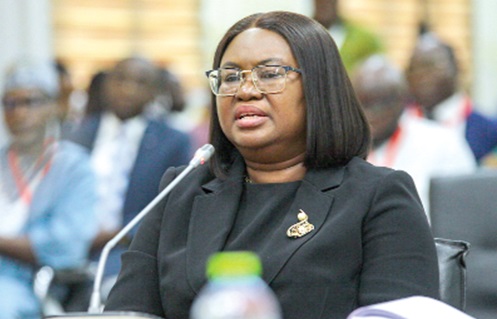The Ghana Muslim Students’ Association (GMSA) has strongly criticised comments made by Supreme Court nominee Justice Hafisata Amaleboba during her vetting before Parliament’s Appointments Committee, warning that her stance on religious practices in faith-based schools poses a serious threat to constitutional religious freedoms.
Supreme Court judge nominee, Justice Hafisata Amaleboba, during her vetting on Wednesday, June 18, 2025 asserted that students who voluntarily choose to attend faith-based schools are bound by the institutions’ codes of conduct, and such expectations should not be viewed as a violation of rights or an act of compulsion.
In a statement issued on June 23, 2025, and signed by National President, Tamim Mohammed Amin, GMSA said it acknowledges Justice Amaleboba’s nomination and commends her for her service to the nation, but expressed misgivings about her assertion made before the committee.
GMSA argued that while rights may not be absolute in law, the right to religious freedom as guaranteed under Article 21(1)(c) of the 1992 Constitution is fundamental, inalienable, and must not be compromised—particularly in publicly funded institutions, including mission schools operating within the public education system.
“It is therefore insufficient to argue that a student has waived these rights merely by choosing a particular school, especially in regions where educational options may be limited,” the statement said.
The Association insisted that faith-based schools that receive public funds and operate under public regulation are constitutionally obliged to respect the religious rights of all students. It particularly condemned practices such as mandatory church attendance for non-Christian students, describing them as violations of freedom of conscience and religion.
“Voluntariness must be genuine and not constructed as a false choice between education and religious integrity. No Ghanaian child should be forced—either directly or through institutional culture—to choose between accessing quality education and practicing their religion freely,” GMSA stated.
The Association called on the Ministry of Education and the Ghana Education Service to issue clear policy guidelines that reinforce the secular and inclusive nature of public education. It also urged Parliament and the Judiciary to uphold and protect religious rights in all judgments and legislative frameworks.
However, GMSA affirmed its commitment to constructive dialogue with all stakeholders to promote tolerance, peaceful coexistence, and constitutionalism in Ghana’s educational institutions.
